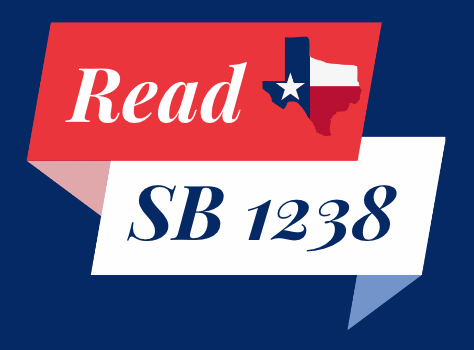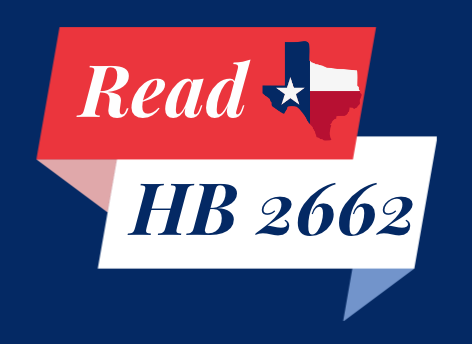As a Texas Computer Education Association (TCEA) member, you understand the importance of connectivity and digital access for educators, students, and communities across Texas. In the 2021 legislative session, the Texas Legislature made significant strides in connecting Texans to high-speed internet with the passage of House Bill 5 (HB 5). This bill established the State Broadband Development Office (BDO), a Broadband Development Program, and a State Broadband Development Account, all while directing the BDO to create and publish the state’s first-ever broadband map and plan.
The Results of a Changing Broadband Landscape
The framework established by HB 5 has since faced rapid changes in the national broadband landscape. The United States Congress has made historic amounts of broadband funding available to states, and the Federal Communications Commission has altered the basic standards of broadband mapping and availability. To better reflect this evolved landscape, Senator Robert Nichols (R-Jacksonville) introduced Senate Bill 1238, and Representative Trent Ashby (R-Lufkin), a former recipient of TCEA’s Friend of Education Award, has introduced House Bill 9 and House Bill 2662.
Senate Bill 1238
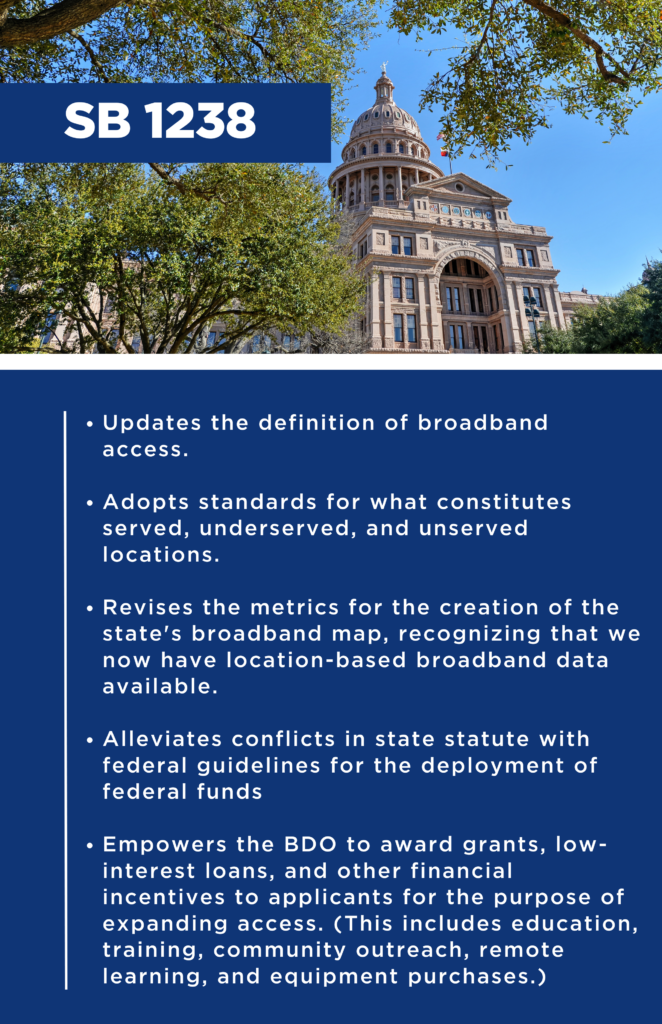
SB 1238 adapts the framework established by HB 5, updating the definition of broadband access and adopting standards for what constitutes served, underserved, and unserved locations. The bill also revises the metrics to be utilized to create the state’s broadband map, recognizing that we now have location-based broadband data available for the first time. Furthermore, it alleviates conflicts in state statutes with federal guidelines for deploying federal funds, where necessary. Most importantly for TCEA members and the, SB 1238 empowers the State Broadband Development Office to award grants, low-interest loans, and other financial incentives to applicants for the purpose of expanding access to and adoption of broadband service. This includes education, training, community outreach, remote learning, and equipment purchases, all of which are vital for educators and students across Texas.
House Bill 9 and House Bill 2662
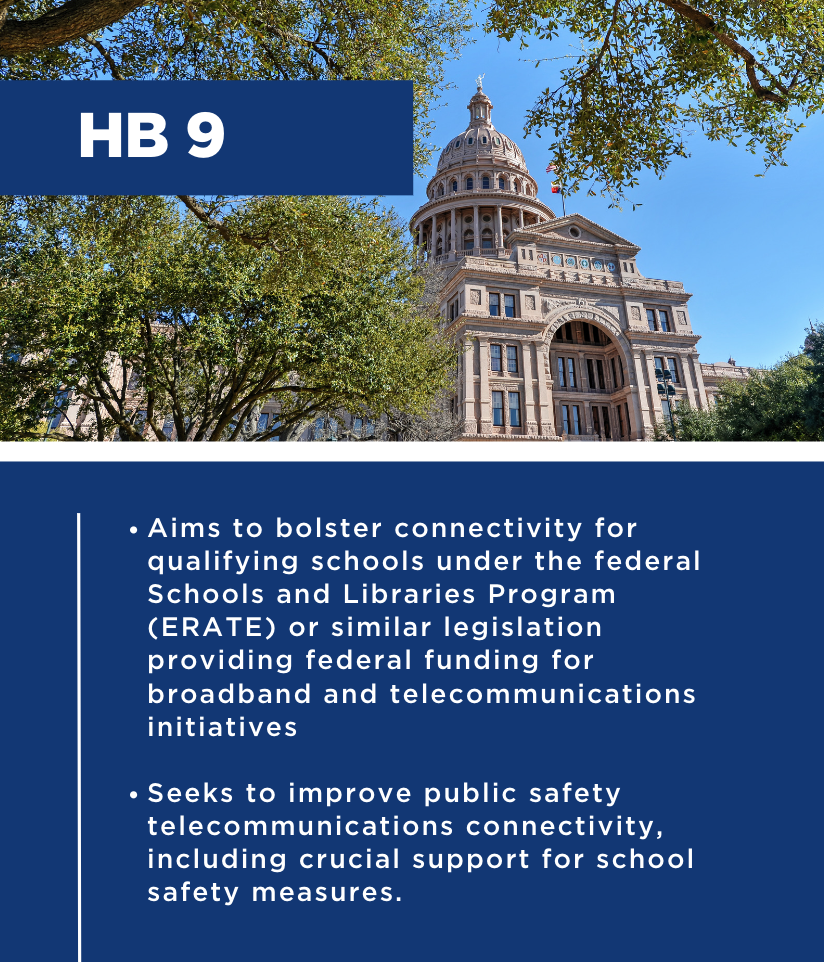
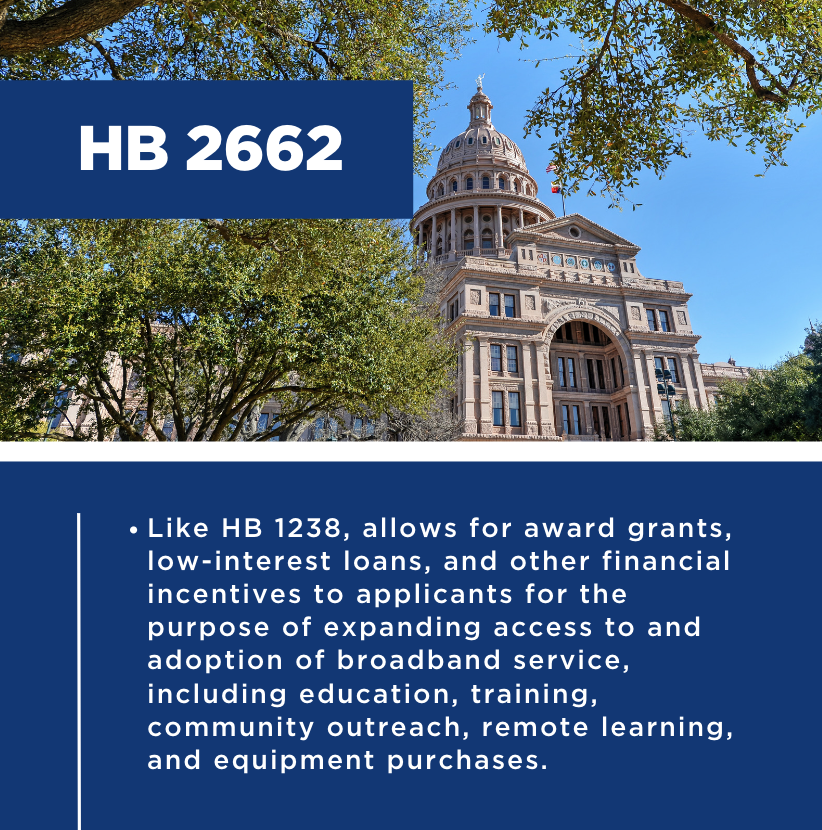
HB 9, introduced by Representative Ashby, aims to bolster connectivity for qualifying schools under the federal Schools and Libraries Program (ERATE) or similar legislation providing federal funding for broadband and telecommunications initiatives. HB 9 also seeks to improve public safety telecommunications connectivity, including crucial support for school safety measures. Like SB 1238, HB 2662 also allows for award grants, low-interest loans, and other financial incentives to applicants for the purpose of expanding access to and adoption of broadband service, including education, training, community outreach, remote learning, and equipment purchases.
Why These Bills Matter
The ability to provide financial support for educational initiatives and investments in technology resources will be a game-changer for many schools and communities, ensuring that students and teachers have access to the tools they need to succeed in an increasingly digital world, all the while bridging the digital divide and provide opportunities for students in underserved and unserved areas.
Why TCEA Supports These Bills
The Texas Computer Education Association strongly supports the passage of SB 1238, HB 9, and HB 2662. We will continue to advocate for policies that prioritize the expansion of broadband access across Texas. By doing so, we are investing not only in the future of our students and educators but also in the future of our state as a whole.
Contacting Your Elected Officials

(R-Jacksonville)

TCEA members, especially those residing in the school districts represented by Representative Ashby and Senator Nichols are encouraged to express their gratitude for their commitment to expanding broadband access and improving education in Texas. If you do not reside in their districts, you may contact your own elected official to express support here.


